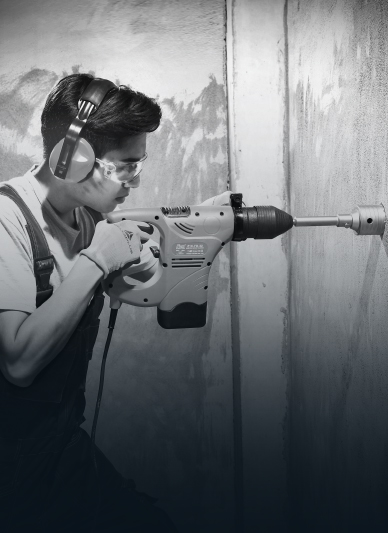Combining efficiency, precision, and versatility, pneumatic screwdrivers are quintessential tools in every industry. From the assembly line to the construction site, this powerful tool has become indispensable for professionals looking for good performance in their fastening applications.
Pneumatic screwdrivers operate using compressed air, using a pneumatic system to convert air pressure into rotational force. The design features a durable yet lightweight casing, often made from high-quality materials such as aluminum or alloy. The ergonomic handle ensures a comfortable hold during prolonged use, helping to enhance the user experience.
The core components of a pneumatic screwdriver include an air motor, a clutch mechanism, and a torque adjustment system. The pneumatic motor drives the rotation, and the clutch controls the torque output to prevent over-tightening. The torque adjustment feature allows users to customize the tool’s torque settings to meet different tightening requirements.
Pneumatic screwdrivers are widely used in industries such as automotive manufacturing, electronics assembly, aerospace, and construction. Their ability to provide precise torque control makes them ideal for tasks ranging from assembling precision electronics to protecting heavy-duty components in construction projects.
Pneumatic screwdrivers offer several advantages over electric screwdrivers. They are typically lighter, have a higher power-to-weight ratio, and provide consistent performance even under heavy workloads. The absence of an electric motor reduces the risk of overheating, making the pneumatic screwdriver suitable for continuous use in demanding environments.
One of the outstanding features of pneumatic screwdrivers is their ability to provide precise torque control. This is critical in industries where fasteners must be tightened to specific standards to ensure product quality and safety. Adjustable torque settings allow users to achieve the desired tightness without the risk of damaging the material.
Pneumatic screwdrivers help increase the efficiency and productivity of the manufacturing process. Their rapid rotation and quick response to operator movements help assemble or disassemble parts faster. This efficiency is particularly beneficial in mass production scenarios where time is a critical factor.
Pneumatic screwdrivers are known for their rugged construction and require less maintenance. The absence of complex electrical components reduces the possibility of failure. Regular lubrication and simple maintenance procedures can significantly extend the life of the tool, making it a cost-effective choice in industrial settings.
Air tools, including screwdrivers, are considered more environmentally friendly than power tools. They produce fewer emissions and have a lower overall carbon footprint. As industries become increasingly focused on sustainability, pneumatic screwdrivers are in line with environmentally friendly practices.
The pneumatic tool industry is witnessing constant advancements, including the integration of smart technologies. Some pneumatic screwdrivers are now equipped with sensors and connectivity that can monitor torque levels and usage patterns in real-time. This data-driven approach enhances quality control and predictive maintenance.
With continued research into energy-efficient designs and the exploration of alternative materials, the future of pneumatic screwdrivers is promising. The industry’s commitment to sustainability is likely to drive innovations that reduce air consumption and further reduce the environmental impact of these tools.
Pneumatic screwdrivers remain an indispensable tool in every industry, offering the blend of precision, efficiency, and durability. As technology continues to advance, these tools will evolve further to meet the growing demands of modern manufacturing and assembly processes.


















